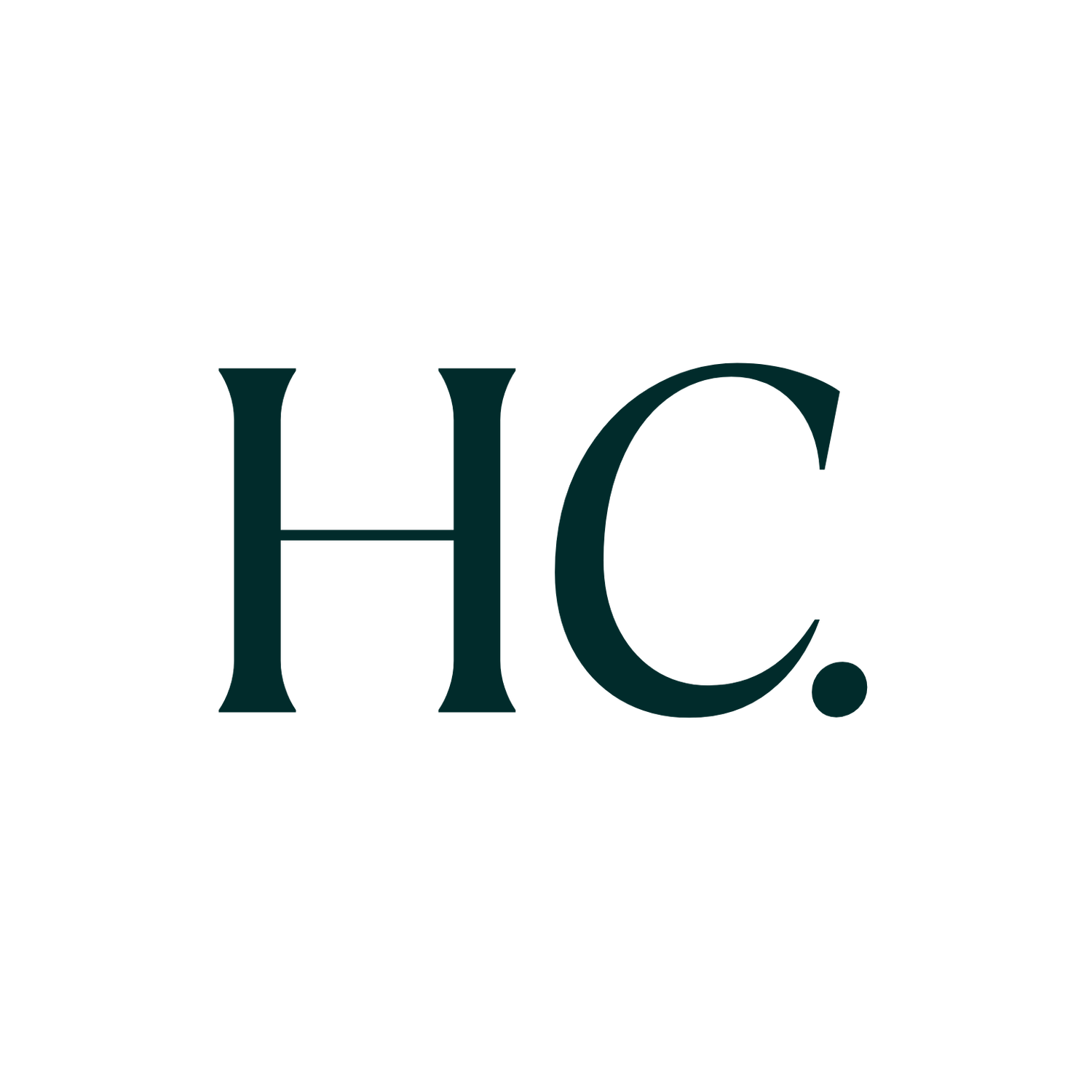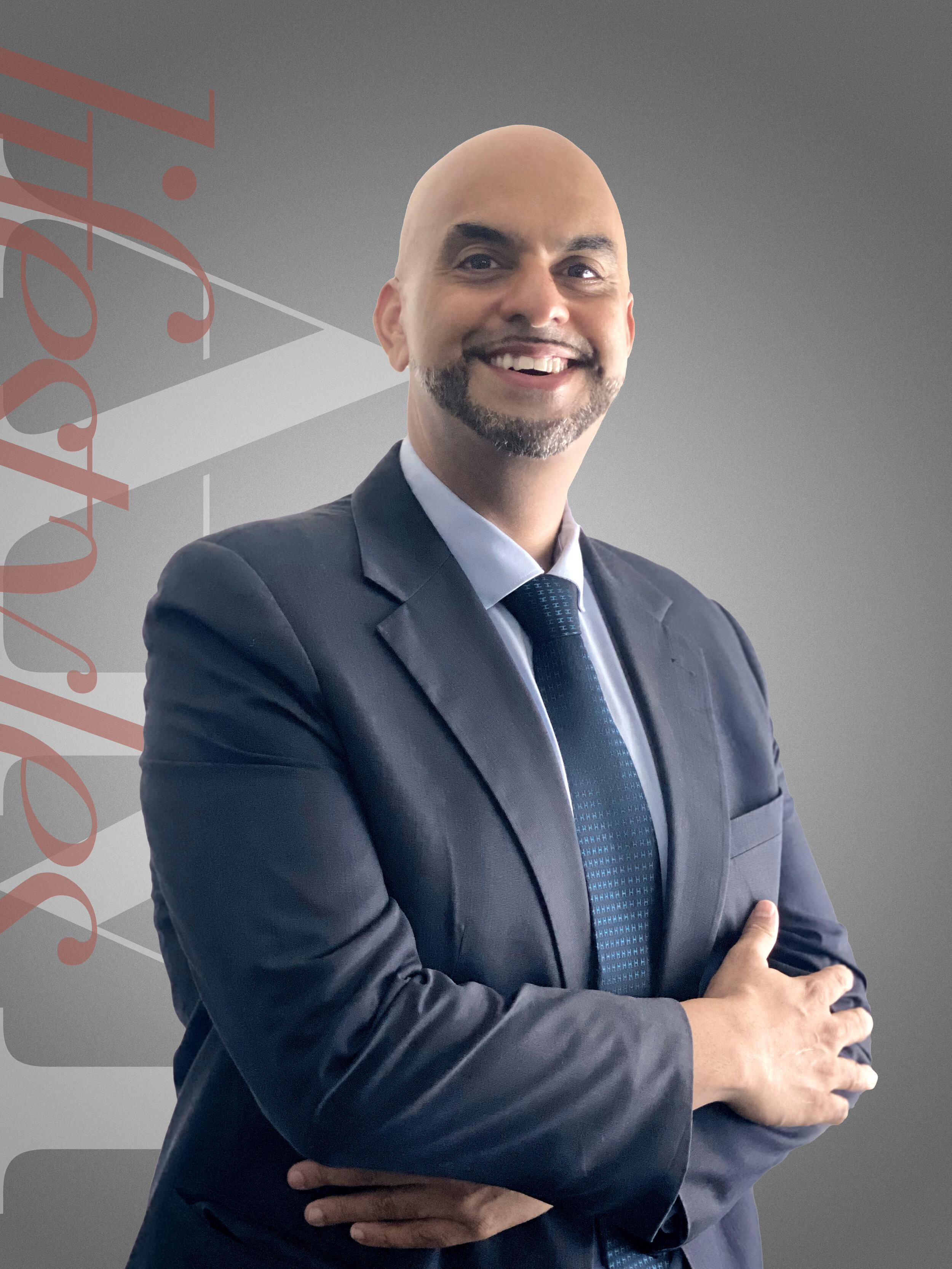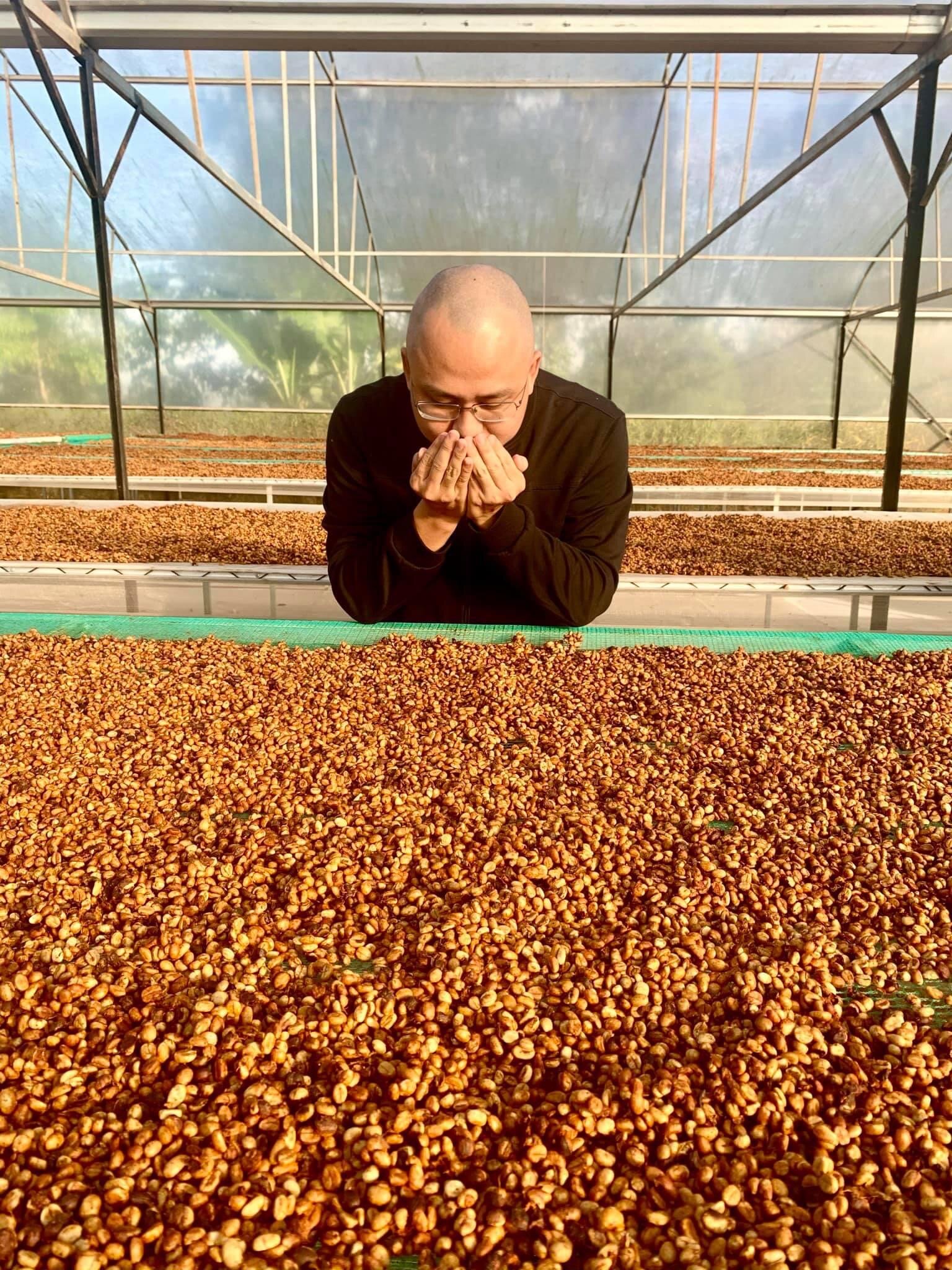We’ve asked 4 F&B leaders how they’ve pivoted their business during COVID-19
Worldwide the HORECA Industry has taken a significant hit by the pandemic with government measures and nationwide lockdowns. The industry is currently in a period of rapid adjustment and adaptation and many of us are finding solutions in order to survive. We’ve asked 4 F&B Leaders on how they have been able to pivot their businesses, adapt to the new normal and what key advices they would like to share with the F&B community.
Tru Lang
A Chinese-Vietnamese American Chef, with experience for over fifteen years. In December 2019, MÙA was launched in the historic Tra Que Herb Gardens in Hoi An, Vietnam. Serving modern cuisine based on Vietnamese ingredients and greatly influenced by Chef Tru’s travels and cultural experiences. MÙA is based on the cornerstones of eco-sustainability, positive community and social impact- and the stories of Vietnam and its people.
COVID-19 has severely impacted travel to Hoi An as a tourism destination. With a 90% drop in travel traffic, the effects were felt of a reduced local economy as well as a shrinking secondary market. With a dine-in restaurant model, MÙA was either restricted by health regulations regarding in-house dining capacity, as well as the need to manage potential questions or anxieties from guests. During the peak of the pandemic, MÙA oscillated between 2 complete lockdowns, closed to tourism during high season, and the typhoon level storms. Having a flexible model and staying tuned to market demands has helped staying alive as a business. I am taking this time to build a strong domestic base in order to succeed and am looking forward to welcoming international food lovers when the borders do open. MÙA switched to a delivery model that catered to a perceived desire for comfort food and homey flavours during the peaks of the crisis. Designing dishes that were hearty and nostalgic were the key to maintaining sales and quality. Once in-house dining was allowed and domestic tourism slowly recovered, MÙA gradually ramped down delivery and moved to their original model of a novel experience that is uniquely personal and allowed ourselves more creativity.
”Constant reinvention is very uncomfortable but the more we became used to discomfort, the faster our business was able to adapt to changes and stay relevant. The most important thing we did was to maintain our brand quality and to stay in touch with the community needs. Now that we are recovering, the community support is invaluable.’’
What are your 2 key learnings of the pandemic that you would like to share with the HORECA-community?
1. Remember your core values. During the pandemic, many businesses closed as it became clear that the cost of maintaining overhead and salaries was unsustainable- while there was no profit to be had. Owners we spoke to, thought of it as conserving their losses and living to fight another day. For us, we always thought it’s more important to support our network of employees, suppliers and guests. We were committed to making sure the community was fed and that the business stayed open. We organized charity drives and offered free meals where needed. Now that the economy is slowly opening back up, we have kept our momentum and are rebuilding easily whereas many have stayed closed, unable to overcome the inertia.
2. Stay flexible and open to change. This goes without saying, but it was a real challenge as the rollercoaster hit us with wild swings. The better we were able to approach our discomfort, the better we thrived. Our team communicated openly with each other in terms of our expectations and fears- this helped us to manage our emotions accordingly.
Asif Mehrudeen
Landed in Vietnam from Australia in 2009, Asif started at Park Hyatt Saigon as Executive Chef for over 5 years. He founded D1 Concepts and developed concepts such as Sorae, San Fu lou and Di Mai. In 2019, he started a new F&B journey by founding AHM lifestyles: a concept development company know for Chickita, a farm-to-table concept and Greyhound Cafe, offering Thai food with a twist. Asif currently works on developing a new vegan concept called Veganitza- a South East Asian inspired Vegan Cafe - to be launched within this year.
For AHM Lifestyles, it was a struggle to maximise daily walk in customers during the pandemic. Over the past 12 months we barely hit the 50% occupancy, given the current inconsistency and uncertainty on the market which becomes challenging to maintain staff, F&B stocks and ongoing overheads. As a reaction, delivery and take-away began to become a critical part of the new lifestyle & new norm for customers. Chickita took this opportunity to raise their quality standards immediately to ensure guests a similar dine-in experience at the comfort of their home.
I truly believe that F&B Businesses in Vietnam will come back to at least 70% - 80% of their normal business. Culturally, the Vietnamese people enjoy eating out as part of their daily lifestyle. I believe the delivery business for the mass market will definitely continue, but the mid-upper end concepts would still become destination dining places for people to continue to visit. The key is to win the hearts of the locals and adapting to their needs would be the strategy. Understand their likes & dislikes, study their feedback closely, focus on returning guests and how you can make improvements continuously.
“We are all living day to day wondering when the world will ever resume back to normal as it is extremely difficult to plan the future, but Vietnam as a country has done amazing in the fight of COVID-19. We now continue to fully focus on our domestic market of over 90million people to feed, and enjoy new exciting F&B concepts which are forever growing in this country’’
What are your 2 key learnings of the pandemic that you would like to share with the HORECA-community?
1. Source the best local ingredients- Vietnam is large and has amazing produce in this land and still many un-discovered ingredients. Tell the story where it comes from!
2. Provide great value products. What we all must ensure is to be able to give access to a large part of the market in today’s pandemic. As a fast growing mid-class country, consumers are always looking for high quality, well packaged and reasonable priced products, bought from reputable sources.
Jackie Vuong
Coming from the corporate world, Jackie poured himself into a new journey with Vietnamese Coffee that delights him every single day. Now being a professional Coffee Roaster himself, certified by the Speciality Coffee Association, he takes his opportunity to introduce the world to Vietnamese Specialty Coffee with Caphesach.org. A Coffee Roastery with a mission to serve people clean and excellent coffee. The key is to inform where we get our coffee, how we select, roast and brew it. Caphesach.org supplies roasted coffeebeans to many cafes and restaurants.
Receiving less orders, some of our customers had to close their coffeeshops, many clients postponed their café set-up services and our weekly workshops were cancelled. COVID-19 had a high impact on Caphesach.org in many ways. Maintaining our cashflow was one of our main issues. Our staff felt the pressure to resign due to external factors that forced them to stop immediately. However, we have always committed to provide the same amount of salary to our staff without any deduction, to give them peace of mind.
As expanding business operations was the last thing on my mind, I took this time to focus on broadening my knowledge about coffee, by spending my time in Bao Loc with other coffee experts. On the side, I focused on pushing online sales through platforms such as Grab, Tiki, Shopee and Lazada. We redesigned our coffee packaging and connected with other HORECA owners internationally to find opportunities to introduce Vietnamese coffee outside of Vietnam. What I realised during the pandemic, is how important company culture is and how it could save a business during a difficult time. As long as you have the best care and love for your team, they would return the favour too.
‘‘During difficult times, remember: everything shall pass.”
What are your 2 key learnings of the pandemic that you would like to share with the HORECA-community?
1. Focus on your online visibility, make sure to be active on social media and join e-commerce platforms if you are selling a consumer product.
2. Stay strong and keep your goal and vision in mind. Learn how to be more flexible within your operations and service sequence.
David Mackay
The Regional Managing Director of HMSHost International for Asia Pacific. As part of the Autogrill Group, HMSHost International is the world’s leading food & beverage operator for people on the move, operating more than 300 brands at around 1,000 locations and serving around 900 million travellers each year*. The Asia Pacific Region stretches across six countries, including Australia, New Zealand, China, Indonesia, Malaysia and Vietnam.
*Pre-pandamic
Present at 13 airports across 21 terminals, with more than 3300 staff across 140 stores, operating brands from regional franchise favourites like Vietnam’s Big Bowl and Indonesia’s Djournal Coffee, through to global brands like Burger King, Popeye’s Chicken, and their own bespoke brands like Urban Food Market and Espresso To Go. HMSHost sits in the crossroads of travel and F&B, with both industries heavily impacted by the pandemic globally. From a thriving company with year on year growth, we found ourselves having to close nearly all of our stores in line with varying government regulations. Some countries remain closed for longer then a year. Naturally we have been significantly impacted financially, headcount numbers decreased and new country expansion delayed. Immediately we set our sights on two main goals; preserve cash (“cash is king”) and preserve the jobs and safety of our people.
Despite being heavily exposed to the loss of international passengers, domestic travel has, in some countries, continued. Vietnam and Australia are solid examples of this domestic travel. HMSHost has been able to steer the company through the pandemic, keeping the business safe, and are posed now for recovery.
‘‘Looking specifically at our Asia Pacific Region, it is difficult to tell yet what this ‘new normal’ will be. Having been through other epidemics like SARS and H1N1, it could be argued that we were uniquely positioned to deal with COVID-19. We have found strength in our ability to be agile, to respond swiftly to a changing landscape and adapt our operations model to meet government guidelines as well as the changed needs of our guests.’’
From the beginning of the pandemic, when we saw the first signs sweeping through our operations in China, we sat up and took notice, as did the governments in this region. We adjusted our processes in line with government guidelines and demonstrated transparent communications with our guests. We fast-tracked digital innovations to speed-up and reduce contact points in service with our guests and adapted our stores to offer take-away.
What are your 2 key learnings of the pandemic that you would like to share with the HORECA-community?
1. Teamwork and open and transparent communication within your regional office and to your teams out in the field. Never underestimate the value in a high-functioning team, especially during crisis. Surrounding yourself with a variety of talented and experienced people not only forms support by sharing the load, but provides a rich and broader perspective through which you can better spot the weaknesses and opportunities. Communicating openly, and with trust, is essential. I am super proud the way my GM’s and their management teams have managed through this crisis.
2. Keep it optimistic and stay positive; during the pandemic we saw that a previously unfathomable ‘worst’ could also look like an unachievable goal. By focusing on the positives, the small wins, the promising signs, we can keep up the marathon to recovery. We believe that recovery will come, and we are ready for it when it does, but for sure it has lasted longer than anyone ever thought it would. Personally I have been through many crazy challenges, from earthquakes, to volcanic ash, cyclones, SARS, Bird flu, Economic crisis’s and so on, but we have weathered every storm so far and expect to do the same with COVID-19.









